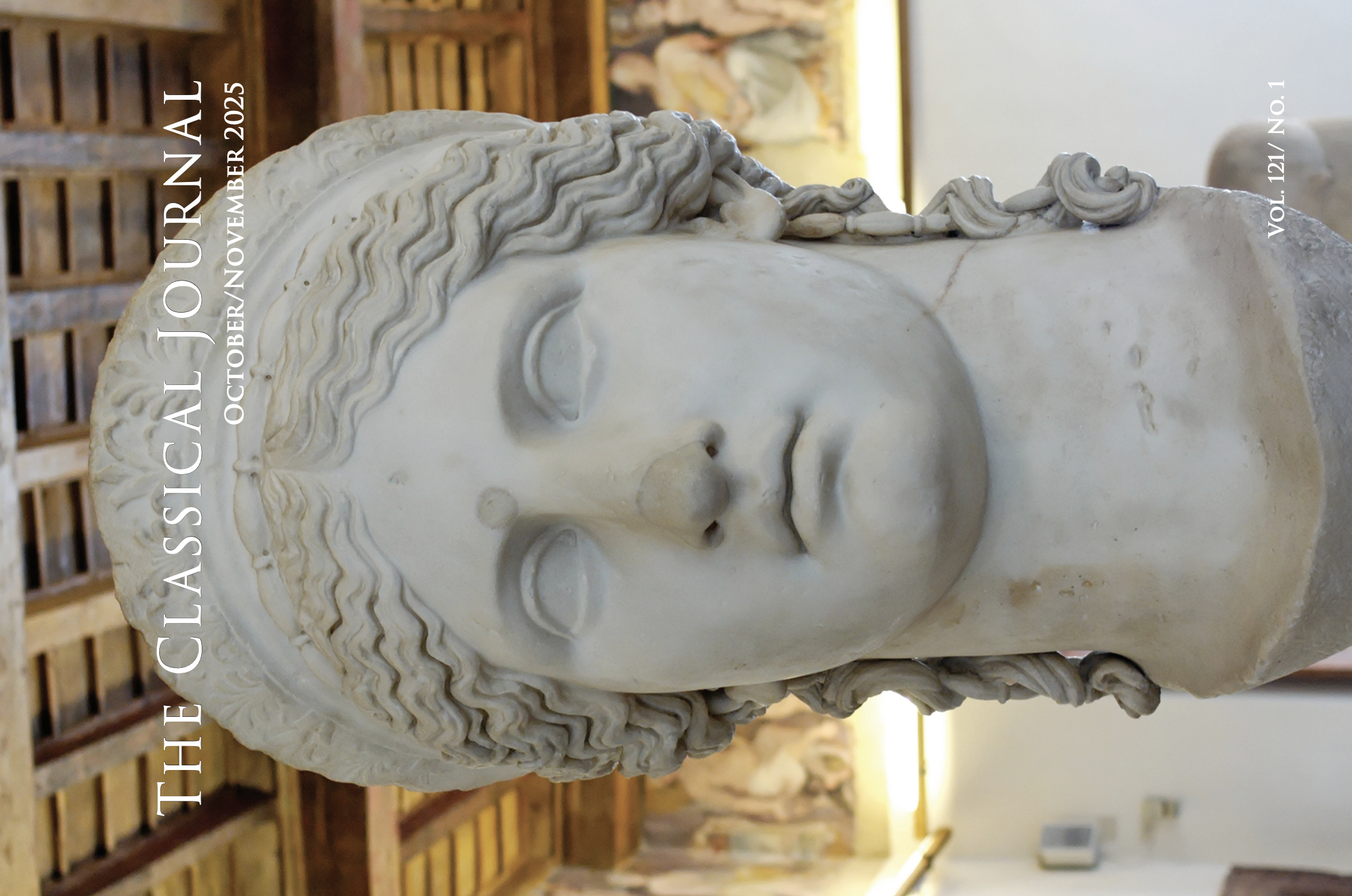The following articles are contained in CJ
103.3
Abstracts of Articles
NINE FRAGMENTS IN SEARCH OF AN AUTHOR: POETIC LINES ATTRIBUTED TO TERPANDER
An examination of the nine fragments attributed to Terpander (some in ancient sources, some by modern editors) suggests that none is securely assigned to him. Indeed, the evidence suggests that most circulated in citharodic prooimia, and that the attribution to Terpander was a metonymic process of identification of a genre with its traditional founder. This interpretation makes better sense both of the fragments themselves and of the uses to which they were put in our source-texts.
THE THEATĒS: MORE TEXTS, FURTHER THOUGHTS
In this paper I bring further light on the meaning of theatēs and its allied verb theasasthai through a discussion of passages from Menander, Xenophon, Herodotus, Plotinus and the New Testament. “Transgressive viewing” is emphasized, as well as places where the “spectation” involved goes beyond the erotic “gaze.”
NOTES ON CICERO’S DE REPUBLICA AND DE LEGIBUS
Cicero seems to have spelt the name P(h)ilus without the aspirate in the Rep. and in allusions to it in his other treatises; the stylistic significance of this is remarked. An emendation is proposed in Leg. 2.28, and the exact sense of ibid. 3.40 is analyzed, with the conclusion that misunderstanding of the sense has led recent editors to emendations inferior to one adopted by nearly all previous editors. Attention is drawn to the need for editors to provide adequate information on transmitted forms of proper names, and to exercise care in altering traditional numeration.
SUNT LACRIMAE RERUM: AN EXPLORATION IN MEANING
The half-line at Aeneid 1.462, sunt lacrimae rerum, although one of the most quoted and controversial utterances in Vergil’s poem, has received little scrutiny from the point of view of linguistic semantics and pragmatics. This paper explores the interpretive options in these terms, and argues that their semantic and referential indeterminacy is both intentional and poetically productive, lending it an implicational richness most readers find attractive.
CAESAR AS JUPITER IN LUCAN’S BELLUM CIVILE
I offer a close reading of the assimilation of the character of Caesar to Jupiter in Lucan’s Bellum Civile, arguing that this representation is played out in Caesar’s rage against other cults of Jupiter. This “battle” becomes another layer of civil war in the poem, but Caesar’s violence is ultimately ineffectual.
MARRYING ATHENA: A NOTE ON CLEMENT PROTREPTICUS 4.54
In his Protrepticus (4.54.2–6), Clement relates a lurid story of an Athenian offer of the goddess Athena as a bride for Demetrius Poliorcetes. I argue that this story arises from the retrojection of a similar Athenian offer to Mark Antony, and suggest that Plutarch’s pairing of Poliorcetes and Antony may have encouraged the conflation of the stories about them.


